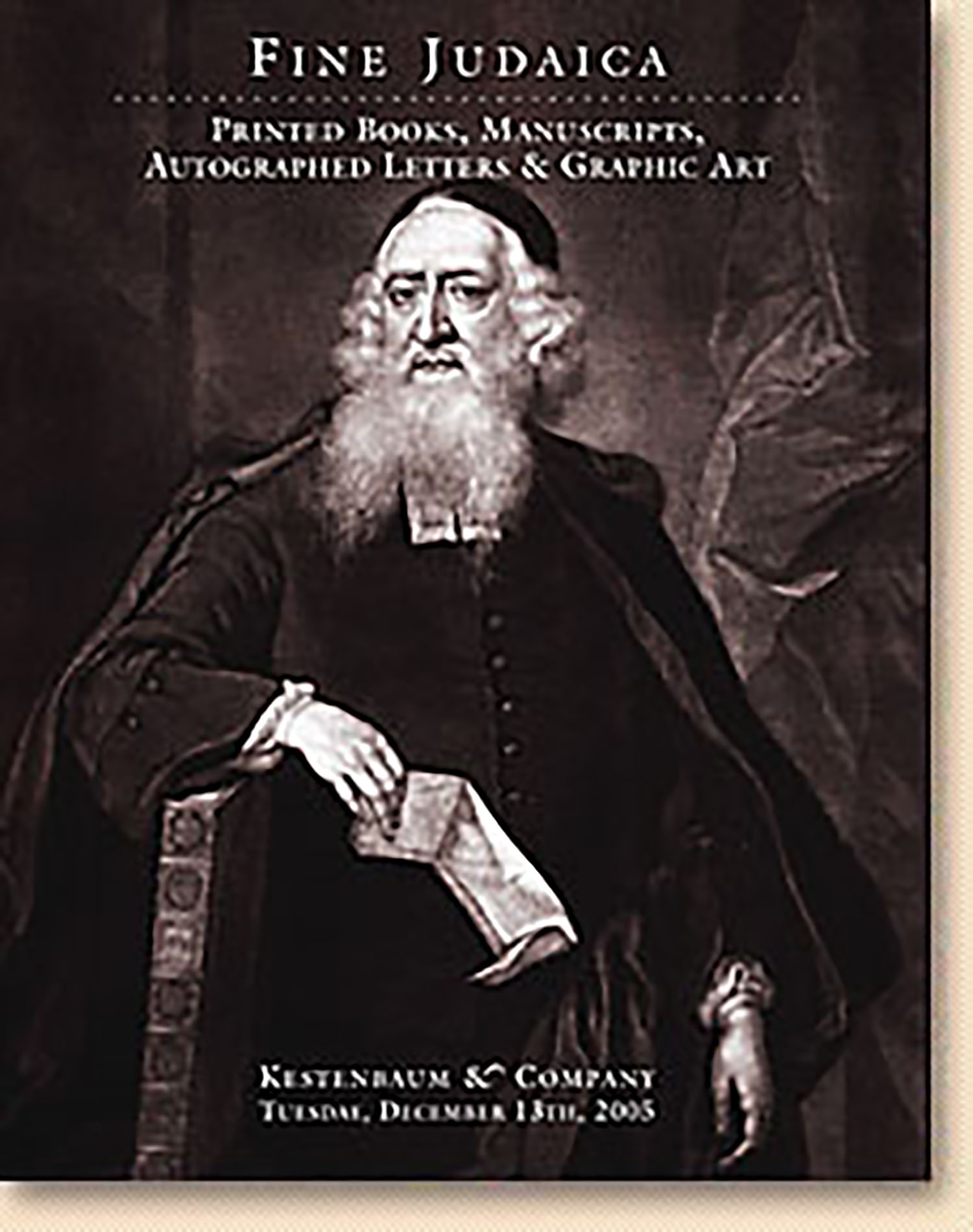Noda BeYehudah

AUCTION 31 |
Tuesday, December 13th,
2005 at 1:00
Fine Judaica: Hebrew and Other Printed Books
Lot 208
LANDAU, EZEKIEL.
Noda BeYehudah
Prague: 1776 and 1811
Est: $500 - $700
PRICE REALIZED $2,000
Marginal notations contain many insights which the writer heard directly from the Noda Be-Yehudah himself.
Several notes criticize the author: see f. 6a ”Bemechilath kevodo lo dak...” (I beg forgiveness from his honor however he did not examine the matter minutely) and f. 57a (lower margin) “ I don’t know how he can blind the eyes of the one who will see what is written...” See also the note on 86b “ I do not understand how he compares these two different matters...” Part 1f. 25a, where he quotes various authorities “some who agree with this author and others contradict his opinion.”
The writer’s entire family were evidently noted scholars. On f.6b he cites a comment on Rashi in the name of his brother, R”A. On f. 17a he writes, “In 1782, Tisha Be-Av was a Sabbath and [the fast] was deferred to Sunday. My brother R”Y was due to be a Mohel the previous Sunday which was the third of Av. The Gaon, the author (ie. The Noda Be-Yehudah), allowed him to take a haircut on Friday which was Rosh Chodesh Av although the Brith was scheduled the following Sunday.” On ff, 33a he writes a lengthy comment which “I heard from the Gaon, this author...” These notes were written circa 1787, see f. 53b where he cites the ”newly published ‘ (1787) book Beth Meir on Even Ha-Ezer. The writer was quite clearly familiar with Kabbalah as well - see his notes to the famous responsa concerning “Leshem Yichud” on f. 84a and b where he refers to the Shefa Tal, Kav Ha-Yashar and the Zohar
